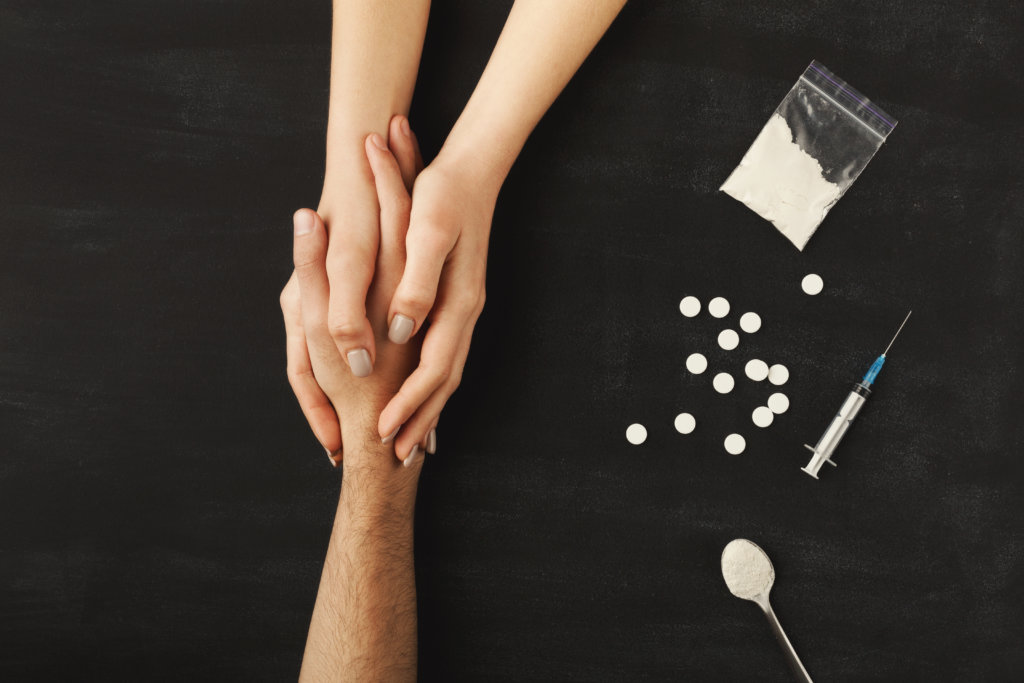Many people can’t understand how others become dependent on drugs. People may believe that drug addicts lack moral principles and willpower or that they can stop using drugs by choosing to.
Drug addiction is a complicated disease. Quitting requires more than just good intentions and a strong will. Even for those who wish to terminate, drugs can alter the brain to make it difficult to stop using them. Researchers have discovered more about drug addiction than ever before and can provide treatments that help people get clean and live productive lives.
What is drug addiction?
Addiction is a long-term condition that involves compulsive or compulsive use of drugs. Although most people decide to use drugs at first, brain changes can affect self-control and inhibit an addict’s ability to resist the urge to use drugs. This is why drug addiction can become a “relapsing disease.” People who have recovered from drug abuse disorders are more likely to return to drugs even after years without using them.
Relapses are common, but it doesn’t necessarily mean that treatment is ineffective. Like other chronic conditions, treatment should continue and be modified based on the patient’s response. Therefore, it is essential to review treatment plans often and adjust them to meet the patient’s changing requirements.

What happens to the brain after someone takes drugs?
The brain’s reward circuit is affected by most drugs. For example, these drugs can cause euphoria and flood it with dopamine. A functioning reward system encourages people to do the necessary things to prosper, such as eating well and spending time with their loved ones. Conversely, dopamine surges in the reward circuit encourage people to continue engaging in unhealthy but pleasurable behaviors such as taking drugs.
The brain adapts to drugs by decreasing the ability of reward circuit cells to respond to them. This reduces the feeling of high a person gets from the drug, a phenomenon known as tolerance. To achieve the same high, they might use more of the drug. This brain adaptation often leads to the person being less able or unable to enjoy other pleasures, such as food and sex.
Long-term use can also cause changes in brain circuits and chemical systems, which may affect functions such as:
- Learning
- Judgment
- decision-making
- stress
- Memory
- Behavior
Many people continue to use drugs despite knowing the dangers. This is addiction.
Why are some people addicted to drugs and others aren’t?
Many factors can influence whether a person will become dependent on drugs. The risk of addiction is affected by a combination of many factors. A person’s risk factors are more likely to lead them to addiction. Take, for example:
- Biology. About half of an individual’s chance of addiction is determined by the genes they are born with. Risk factors for addiction and drug use include gender, race, and other mental disorders.
- Environment. The environment a person lives in includes many influences. These include family, friends, economic status, and overall quality of life. In addition, peer pressure, sexual and physical abuse, early exposure, parental guidance, and stress can all significantly impact a person’s chances of developing a drug addiction.
- Development. To increase the risk of addiction, genetic and environmental factors play a critical role in shaping a person’s story. While drug addiction can occur at any age, it is more common for those who start using drugs earlier than others. Teens are particularly vulnerable to this. Teens may be more prone to dangerous behaviors such as drug use because their brains are still developing.
Is it possible to cure or prevent drug addiction?
Treatment for drug addiction is not a cure for many chronic diseases like diabetes, asthma, heart disease, and heart disease. But addiction can be treated and managed. Relapses can occur for many years for people who have been addicted.
Research has shown that patients who combine addiction treatment with behavioral therapy have the best chance of success. Treatment can be tailored to the individual’s drug use and co-occurring mental, supervised detox, and social issues for continued recovery.
The good news is that addiction and drug use can be prevented. NIDA-funded research has shown that prevention programs involving families, schools, and communities effectively prevent or decrease drug abuse and addiction. Even though personal and cultural factors can influence drug use, young people tend to reduce their drug intake when they see it as dangerous.
Education and outreach are crucial in helping people to understand the potential risks of drug abuse. Education and prevention of drug abuse and addiction are crucially important for parents, teachers, and health care professionals.

Important Points
- Drug addiction is a chronic condition that includes drug addiction, compulsive drug use, and the need to seek out new drugs despite the dangers.
- Over time, the brain changes caused by substance abuse can affect a person’s ability to control their impulses and make it difficult to resist the urge to use drugs. Drug addiction can also be a relapsing condition.
- Relapse refers to the return to drug abuse after a failed attempt to stop it. Relapse is a sign that you need more or a different type of treatment.
- Dopamine is a chemical messenger that floods the brain with drugs. As a result, dopamine surges in the reward circuit can reinforce unhealthily but pleasurable activities. Unfortunately, this causes people to continue repeating the same behavior over and over again.
- The brain adapts to excess dopamine over time. This reduces the feeling of high compared to when they first took the drug. This is known as tolerance. To get the same dopamine high, they might consume more drugs.
- Many factors can influence whether someone will become addicted to drugs. The risk of addiction is influenced by a combination of environmental, genetic, and developmental factors. A person’s risk factors are more likely to lead them to addiction.
- It is possible to treat substance use disorder and manage it successfully.
- The good news is that addiction and drug use can be prevented. Therefore, education and prevention of drug abuse and addiction are crucially important for parents, teachers, and health care professionals.

Hathaway Recovery is a luxury drug rehab center in California offering healing recovery from all substances. We are a leading provider of high-quality clinical and nursing treatment programs for our clients who require the very best psychological and dependency treatment services. Hathaway Recovery is a safe space for individuals who are serious about their recovery to discover the root cause of their addiction and find new skills for a productive life.






